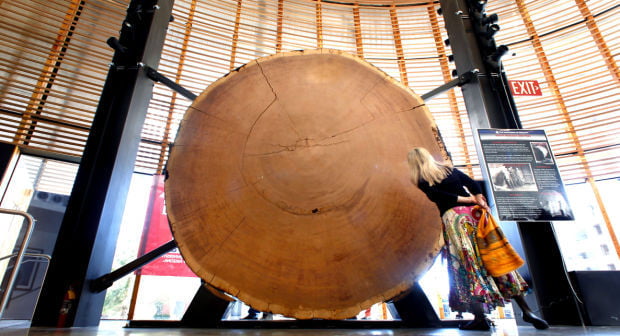PHOENIX — An organization questioning the research behind climate change will get another chance to demand to see the emails of two University of Arizona scientists.
The state Court of Appeals has overturned the ruling of a trial judge who said the university need not disclose 1,700 emails and other records from Jonathan Overpeck and Malcolm Hughes. Pima County Superior Court Judge James Marner had said the university did not abuse its discretion in concluding that disclosing the documents would not be in the best interests of the state.
But appellate Judge Joseph Howard, writing for the unanimous court, said it’s legally irrelevant what university officials thought was appropriate to disclose. Howard said everyone involved in the case acknowledges the emails are public records. And he said state law carries a presumption that all public records are subject to disclosure, with certain exceptions.
What that means, Howard wrote, is that trial judges must actually examine the records to determine whether making them public really would harm “the best interests of the state” as the university is claiming.
The ruling does not guarantee the Energy & Environment Legal Institute, which has raised questions about climate change and the causes behind it, will get all the documents. But in raising the bar for the university to shield them from disclosure, it increases the chances that at least some of them will see the light of day.
And while the decision could be seen as a setback for the university, it underscores the breadth of the state’s public-records laws and the fact that the burden of proof in these cases lies with the party trying to shield them from view.
New legal briefs are due this week, after which Marner will set a date to hear arguments.
Hughes said he could not comment on the litigation. Overpeck did not return a call to his office seeking comment.
The group, formerly known as the American Tradition Institute, filed a request for more than a decade’s worth of emails of the two UA professors, whose work focuses on climate change.
According to court records, the university provided more than 1,600 pages of records and a log describing about 1,700 records it was withholding. The university said it was withholding emails “to protect either the confidentiality of information privacy of persons, or a concern about disclosure detrimental to the best interests of the state.”
After the group sued, the university gave the judge about 90 of the withheld emails, which both sides agreed were representative .
Marner said some emails were properly withheld because they contained things like confidential information or attorney work product.
There was another batch the judge described as “prepublication critical analysis, unpublished data, analysis, research, results, drafts and commentary.” Marner said the university had not abused its discretion in withholding these or that it acted arbitrarily or capriciously.
It is that second batch that is at issue.
Howard, writing for the court, said Arizona law expresses an “open access policy toward public records” and exists “to allow citizens to be informed about what their government is up to.”
But he also said the law permits withholding documents that are privileged, confidential or “detrimental to the interests of the state .”
What’s important, Howard said, is that while the agency with the records has the initial discretion to deny access, “under no circumstances should that determination be final,” calling that “inconsistent with all principles of democratic government.” What that means, Howard said, is that Marner is required to determine, on his own, whether disclosure would be contrary to the best interests of the state, regardless of the arguments of the university.
In filing the original lawsuit, attorney David Schnare of the E & E Institute said Overpeck was prominent in the “cause” of global warming, including “activism for environmental pressure groups.”
Schnare also said the pair came to his group’s attention after a server at a British university was hacked, disclosing thousands of email exchanges between academics and others involved in climate research. He said the lawsuit is part of a larger effort by his organization to find whether there’s any bias to research and conclusions.
The issue, he said, is that the majority of this research is funded by the federal government. And that, Schnare argued, can taint the results.
“The technological elite continues to get federal money if it views global warming as an existential threat to mankind,” Schnare said. He said requesting the public records associated with the research will help understand “the quality of the science that is the foundation of the policies that are being applied to us all.”
What all that will show, Schnare said, is whether there are “biases.”
He said that can occur scientifically in terms of which data are used and what methods are chosen.
“And then there are biases associated with preparing papers and doing research that’s outcome-oriented,” he said. Schnare said viewing the emails and other documents will enable his group to figure out whether any of that is at play.
Schnare is not saying global warming does not exist. “Is there some?” he said.
“Well, the answer is ‘yes,’ depending on what your starting point is,” saying that depends on whether one looks at the last 18 or 19 years or back to the 1960s and 1970s.
“I’ve never said that 100 percent of that increase is natural,” Schnare said. And he said carbon dioxide is a “greenhouse gas” that can trap heat. “Holding all other things equal, inevitably the temperature would have to go up and therefore mankind would have an effect on that,” he said. “Here’s the problem: You can’t hold everything else all equal.”





